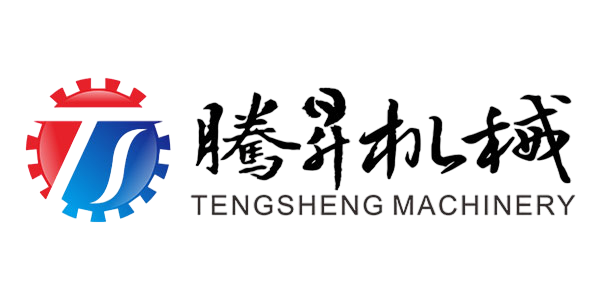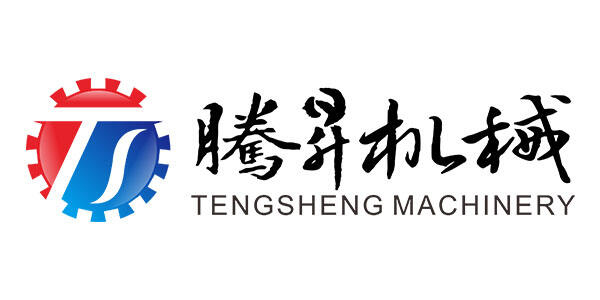Modular food processing tech has come a long way since its humble beginnings. Back in the middle of last century, folks started using simple mechanical setups just to make those really tedious manual jobs a bit easier. Things picked up steam in the 80s when automated conveyors hit the scene alongside those fancy PLC controllers, basically turning factories into semi-automated beasts. But honestly, everything changed around 2000 with the rise of IoT technology. Suddenly, all sorts of equipment could talk to each other and get monitored from anywhere on Earth. These tech breakthroughs didn't just change how modular systems work they actually made them run way better too. Take real time data gathering and predictive maintenance for example many plants saw their downtime drop dramatically while productivity shot through the roof. Some studies even suggest that food processors who integrate these smart technologies see about a 30% boost in overall efficiency. And let's face it, this kind of progress matters more than ever as demand keeps climbing while still keeping food safe and up to standard.
Modular systems bring real benefits when compared to old fashioned fixed setups, especially when it comes to growing vegetables. The main thing is how flexible they are. A plant can handle one type of veggie today and switch to another tomorrow without needing major changes. This matters a lot for companies working across multiple markets where demand shifts constantly. Take carrot processing lines for instance. With modular equipment, switching over to potatoes takes minutes instead of days, cutting downtime dramatically. What's more, these systems work just as well for tiny family farms as they do for big industrial operations, no need to tear everything apart and start fresh. Industry data shows something interesting too. Companies using modular approaches report around 20% better productivity numbers because setup times drop and scaling becomes easier. Vegetable growers looking to grow their business or deal with seasonal fluctuations find this particularly helpful. At the end of the day, modular solutions boost output while staying both environmentally friendly and budget conscious in an industry that never stands still.
The TS-Q120 Large Scale Vegetable Cutter uses cutting edge tech that's built for serious volume work in commercial kitchens. It handles all sorts of leafy greens really well and slices fruits and veggies with consistent results every time, so there's less variation between batches. Getting precise cuts makes a real difference when it comes to how much gets wasted versus what actually ends up being used, something that matters a lot in big scale food prep environments. Restaurants and processors who switch to this model typically see their prep time drop off quite a bit, which means they can get more done without spending extra on labor or equipment wear and tear.
The TS-Q120B Widened Leafy Vegetable Processor was built with leafy greens in mind, thanks to its broader frame design. The wider conveyor belt allows for much greater volume processing, which makes all the difference when running at full capacity during peak seasons. With this kind of setup, facilities see better flow rates throughout their operations, leading to noticeably faster production times across the board. Many processors in the field report that they can ramp up output pretty quickly when demand spikes, which explains why so many greenhouses and packing houses are turning to this model these days for their daily processing needs.
The TS-Q311 Vertical Root Vegetable Machine does more than just one job, which makes it really useful across different kinds of vegetable prep work. What sets it apart is the vertical setup that saves floor space in kitchens and food processing areas. This design also makes things run smoother during operations. The machine handles root veggies pretty well too, whether they need slicing, shredding or getting cut into small pieces accurately. Food processors love how flexible this equipment proves to be in real world situations. Many businesses report being able to switch between tasks without downtime, all while keeping up with demanding production schedules and quality requirements.
Cutting modules that can be swapped out are changing how food processing lines deal with all sorts of crops. What makes these modules so useful is their flexibility - they let operators adjust settings fast when switching between different veggies, saving tons of time compared to traditional methods. Take tomato slicing versus lettuce shredding for instance. With interchangeable parts, a plant can go from one task to another in minutes rather than hours. Real world data shows some companies cut down their changeover periods by over 50% after installing these systems. This kind of adaptability means processing plants can respond better to market demands while keeping costs under control.
Flexible conveyor setups are really important for handling different batch sizes in manufacturing operations. They give factories the ability to change gears when production needs shift, which keeps everything moving along without those annoying stoppages that waste time and money. When manufacturers can tweak conveyor speeds or rearrange them on the fly, they get way better throughput rates across their facilities. Factory managers have seen some pretty impressive results from these adjustable systems over the years. Companies using them often report faster turnaround times and fewer bottlenecks, especially during peak seasons when demand spikes unexpectedly. This kind of adaptability makes all the difference in staying ahead of competitors who still rely on fixed conveyor arrangements.
The fresh cut produce industry has seen major changes thanks to scalable processing solutions that bring real flexibility to production lines. Modular tech lets food processors tweak their operations when demand shifts around, which helps keep things running smoothly without constant stoppages. Take TOMRA Food for example their modular setups work just as well for tiny local businesses as they do for massive global corporations. As companies expand, these systems simply grow with them instead of requiring complete overhauls. Most processors know all too well about dealing with unpredictable markets and different sized harvests, but modular approaches give them exactly what they need to handle those headaches without breaking stride. Real world tests show impressive results too one processor reported cutting downtime by nearly 40% after switching to modular equipment while another saw throughput jump by almost half. These numbers make it clear why more and more fresh cut producers are betting on scalable tech despite the upfront costs.
Modular freezing systems are changing the game for frozen vegetable processing, making operations more efficient while keeping food quality high. These systems let processors adjust their freezing capacity by simply adding or removing units depending on what they need at any given time. Take a look at how this works practically speaking: when production slows down, companies can power down some units instead of running them all day long, which cuts energy bills dramatically. What about the actual vegetables? Well, the freezing process preserves taste and nutrients much better than traditional methods. Industry numbers back this up too many plants report better results after switching to modular setups. Companies that want to stay competitive in today's market would do well to consider these systems for their processing lines.
Adding AI systems to modular farming gear is changing how we process food today. These smart machines work better because they cut down mistakes people make while running them in factory settings. When equipped with artificial intelligence, the equipment adjusts itself automatically as it gets information from sensors throughout the operation. For instance, if soil moisture drops below certain levels during harvest season, the system knows exactly when to ramp up drying capacity without waiting for someone to notice first. According to research published last year by IFPA (International Food Processing Association), farms adopting this tech might see their output jump around 25 percent over ten years time frame. Industry insiders think there's still plenty left untapped here too. They argue smarter machinery means farmers won't have to worry so much about unpredictable weather patterns affecting crop quality anymore either way. And let's face it folks, our planet needs all hands on deck right now just to feed everyone living on it!
Green manufacturing has become central to how food processing equipment gets designed these days, thanks largely to advances in energy efficient modules. Food processors find their bottom lines improving when they install these modules because they cut down on electricity usage across the board. Some studies show factories that switch to these modular systems save around 30% on their power bills. What's interesting though is that beyond just saving money, these modules actually help make food production cleaner overall. They reduce greenhouse gas emissions and help conserve water and other raw materials during processing. The food industry is clearly heading toward sustainability, and many manufacturers see these energy saving modules as practical solutions for going green without sacrificing productivity or profits. We're seeing this shift happen worldwide as agricultural sectors everywhere try to meet stricter environmental regulations and consumer demands for greener products.


Copyright © 2024 Zhaoqing Tengsheng Machinery Co., Ltd all rights reserved - Privacy policy